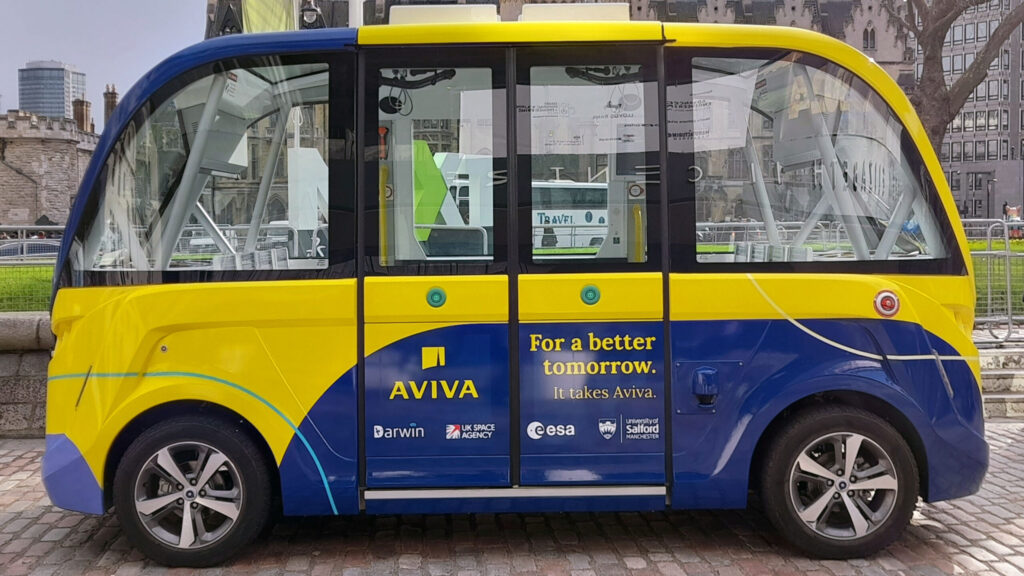Now, after two years of successful operation, Aviva, Darwin, and the University of Salford are enhancing the service by introducing a second self-driving shuttle.
Similar to its predecessor, the new shuttle boasts no driver or steering wheel. Instead, it relies on a sophisticated array of cameras, LiDAR sensors, 3D maps, and self-driving software to navigate routes, pick up passengers, and detect obstacles. The addition of a second shuttle provides invaluable insights into the interaction of self-driving vehicles in real-world scenarios.
Both shuttles ferry passengers around Harwell Science and Innovation Campus in Oxfordshire, backed by support from the European Space Agency and UK Space Agency. However, the University of Salford’s collaboration with Darwin aims to deepen understanding of autonomous vehicle operations and eventually deploy such vehicles in the Manchester area.
Aviva insures both shuttles and has been closely monitoring data shared by Darwin since the launch of the first shuttle in 2021. This data exchange enables Aviva to refine insurance products for connected and autonomous vehicles (CAVs). The introduction of the second shuttle enriches the dataset, informing Aviva’s ongoing development of insurance solutions for autonomous vehicles.
Daniela Petrovic, co-founder of Darwin explained that the deployment of a second vehicle accelerates advancements in CAV software: “We are testing both vehicles all the time, and improvements in one are immediately deployed in the other.”
She continued: “As the transportation and insurance industries are interwoven, it’s important for insurers to develop as transport evolves. With the expertise we’ve developed through over two years of autonomous vehicle operation, we’re working closely with Aviva to help make widespread autonomous transport a practical reality.”
Darwin is also testing the capability of autonomous vehicles to operate on-demand, allowing passengers to summon shuttles to specific stops along their route. This feature holds promise for wider deployment in the future, potentially reducing reliance on individual cars in rural areas.
Tom Pitney, Head of Motor at Aviva, also commented, saying: “The addition of a second shuttle to the autonomous vehicle trial marks an important milestone in our five-year partnership. This trial will give us access to a wealth of rich data, providing valuable insights into claims, underwriting, risk and product areas.”
He added: “This will enable us to be at the forefront of future mobility and ensure that we have products ready to insure the vehicles on our roads as they evolve and change.”
Original source: Aviva










